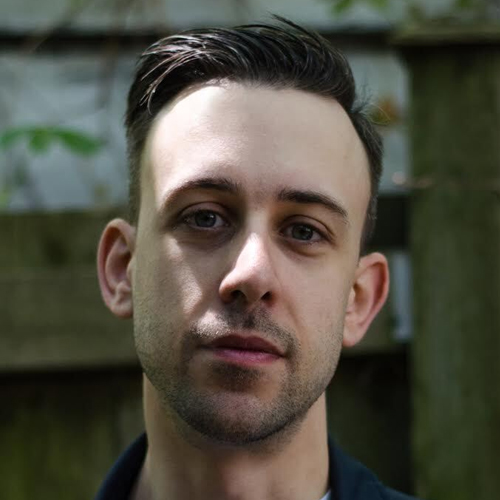Final Fantasy 7 Rebirth opens with a curious alternate version of the last game’s ending: instead of escaping the chaos in Midgar, our heroes are injured and carried away by Shinra forces—or are they? This scene ends with one of Rebirth’s favorite tricks: a video glitch that lets us know things are not as they seem. It’s a great way to build intrigue and plays off the biggest strength of this new series: the assumption that the player knows the story better than the characters.
Unfortunately, that earned momentum doesn’t last long. After the intriguing opening, you’re forced into a glacially-paced flashback/tutorial. Here, you flip back and forth between awkwardly climbing cliff faces and *checks notes* dragging a big vacuum around and getting your ass handed to you by the game’s complex combat system. It’s here the game’s biggest sin first appears: during exploration or combat, you are constantly interrupted by text tutorials, forced camera movement, and the chatter of your companions—often happening all at once!
The flashback/tutorial ends with Cloud limping through a burning village, and I cannot emphasize how slow and boring this sequence is. The chaos of the fire and the bombastic music—not to mention the liberal use of slow motion—try so hard to hammer how important and epic this moment is, but what’s actually happening is completely drama-less. It’s the Zack Snyder-fication of video game storytelling: big moments, no feeling.
Finally released from the tutorial’s clutches, we catch up with our party in the present day, on the run but free of Midgar. But wait, didn’t we see them all incapacitated and captured by Shinra? I’m currently 12 hours into the game, and this alternate universe/timeline/whatever has not been explained.
After another hour of forced tutorials and a stealth sequence, the party escapes into the wilderness, and Final Fantasy 7 Rebirth actually starts in earnest. The wide world of the planet is ahead of you, villainous hotboy Sephiroth is somewhere out there, and the evil forces of Shinra are in pursuit. What kind of new adventure does the immortal Final Fantasy have in store for us?
It’s a goddamned open-world game. There are little clusters of monsters to fight, and sidequests to complete, and crafting materials to gather. They even have towers. Towers! That reveal more icons on the map! It’s 2024!
Needless to say—which is part of the problem—dumping you into an open world sequence completely kills the game’s momentum. Despite narrowly evading Shinra forces in the town of Kalm, you can just… go back there to play a useless card game, take on a photo mode challenge, or accept a sidequest where you repair a pipeline. Didn’t we spend the entirety of the last game trying to blow those up? Who cares! Numbers go up!
This is Rebirth‘s biggest problem: it wants to be the only video game. Not just the only game you are playing, the only game, period. Members of the development team have said a few times that Rebirth is a great starting point for the series. Which is ridiculous! This is a sequel to a remake of a portion of a game that came out in 1997!
The characters and environments are lovingly recreated based on our memories of the original Final Fantasy 7. The story assumes familiarity with both the original and Remake, and the combat system basically requires some affinity with other action games, but all the tutorials and handholding treat the player like it’s the first time they’ve ever picked up a controller. Who is the audience for Rebirth other than “PS5 owners?”
Let’s get real basic for a second: What are the motivations of this story? Why is Cloud pursuing Sephiroth? Vengeance, I guess—we see in the first scene that Sephiroth killed Cloud’s mom—except, because of the weird glitchy video thing, maybe he didn’t. Why is Aerith following Cloud? Because she has a crush on him? What about Red XIII? He seems to want revenge for what Shinra did to him, but he’s also pretty chill about it. In fact, everyone is pretty chill about everything, because any sort of driving force might distract the player from visiting all the little icons on the map.
Do you ever notice how, in a book series like Harry Potter, the books get longer as the series continues? As writers become more successful, the role of the editor falls away so that “the fans”—that nebulous, angry, wallet-burning glob of Twitter usernames—don’t feel robbed of the divine genius of their current favorite creative. Final Fantasy 7 Rebirth is in desperate need of an editor, someone who can evaluate the project as a whole and say, hey, maybe we don’t need a crappy Mario Kart ripoff in the middle of our 100-hour-long melodrama. It’s like the entire development process of this game was just that webcomic of that guy getting chucked out a window over and over again for 6 years.
It’s an interesting time to release something as bloated and directionless as Rebirth. Entertainment is in a weird place: the gaming industry has seen a brutal wave of mass layoffs and streaming services keep upping their prices while pumping out more and more mediocre content, and both have impossibly high standards of profitability that are only getting higher.
On the other hand, the movie industry is thriving: 2023 was one of the best years for movies ever, with big movies by big directors that lived up to the hype critically and made a ton of money. 2024 has already seen the release of Dune Part Two, a thoughtful and intelligent blockbuster that also happens to totally kick ass. Hopefully, video games take the right lessons from this era of high-budget films with art house souls—before we’re all buried in the content sludge.
Storycraft is a column by Colin Munch that dives into storytelling in video games and other media. You can read his other work here.







Published: Mar 8, 2024 04:52 pm